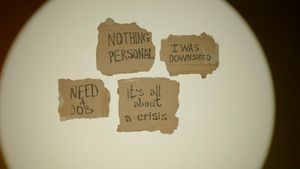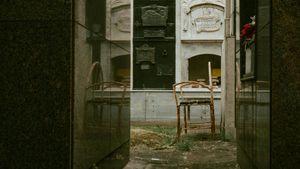GOMA - The situation continues to deteriorate significantly as the M23 rebels consolidate their control over Goma and the surrounding North Kivu region of the Democratic Republic of the Congo (DRC). Despite having declared a unilateral ceasefire several days ago, heavy fighting resumed early Wednesday, with reports of intense clashes between M23 forces and the Congolese army.
Error and devastation have claimed nearly 3,000 lives since the onset of the conflict, according to the United Nations. Vivian van de Perre, deputy head of the UN mission in the DRC, gasped in distress during a video call with reporters, indicating how dire the circumstances have become. "So far, 2,000 bodies have been collected from the Goma streets, with another 900 bodies remaining within the morgues of local hospitals. We expect this number to go up," she said.
The city of Goma, home to approximately 2 million people, has now fallen under M23 control. Reports indicate bodies strewn across the streets, with morgues overwhelmed and unsanitary conditions causing fears of disease outbreaks. Van de Perre did not sugarcoat the gravity of the situation, adding, "There are still many decomposing bodies in certain areas." The potential for outbreak looms large, prompting the World Health Organization to voice their concerns.
The M23 rebel coalition, reportedly backed by Rwandan forces, has escalated its offensive since early January, breaking previous ceasefires and pushing ever-deeper across this mineral-rich region. The DRC government has continuously accused Rwanda of supporting the insurgents, claims which Kigali has consistently denied. Concurrently, Rwanda's president, Paul Kagame, recently hinted at the presence of Rwandan military troops within the region, aiming to safeguard national security.
Undeniably, the M23 incident distills the long-standing ethnic tensions rooted within the region over access to land and minerals, heightening one of the world’s largest humanitarian crises. The instability has created thousands of displaced civilians, many of whom are seeking refuge at overcrowded UN peacekeeping bases, where resources and safety have become increasingly scarce.
The UN has also raised alarms concerning the loss of key infrastructure, with the airport closing down due to M23 control. Van de Perre’s warnings strike hard: "Bukavu’s Kavumu airport is also under M23 control and is closed until... for the foreseeable future." The capture of Bukavu is of chief concern since the airport plays a pivotal role for humanitarian aid efforts across South Kivu.
Adding to the turmoil, reports emerged of mass incidents of sexual violence against women from Munzenze prison during the uprising, when more than 160 female inmates were attacked during the chaos. Following the takeover of Goma, local police reported numerous acts of brutality. "Women died after their area within the prison was set on fire," said investigator Robert Kayembe.
With the humanitarian disaster worsening, the Congolese government has characterized the ceasefire as false and continues to voice strong condemnations of the M23 rebellion and Rwandan intervention. Congolese Foreign Minister Therese Kayikwamba Wagner expressed frustration about the lack of effective international measures over the conflict.
While peace talks are urgently needed, tensions are reportedly rising along the route to Bukavu, just 50 kilometers (around 31 miles) north of the city. Van de Perre noted the situation's gravity, urging the need for diplomatic dialogue: "We really need to get back to the negotiating table.”
Looking forward, the intense conflict leaves much to reckon with. Civilians continue to bear the brunt of the fallout, and the narrative is not yet at its conclusion. M23 rebels have made plans to advance even beyond Bukavu. Expressing their ambitions, rebel leader Corneille Nangaa reaffirmed intentions to take control over Kinshasa, the DRC’s capital, stating emphatically, “We are going to move from Goma to Bukavu, and then to Kinshasa.”
It is clear the situation remains fragile, and each day escalates the human suffering experienced by innocent civilians caught between the violence of armed groups and the overarching political turmoil within the DRC. The international community’s response and intervention could play decisive roles as lives hang perilously by the thread.



